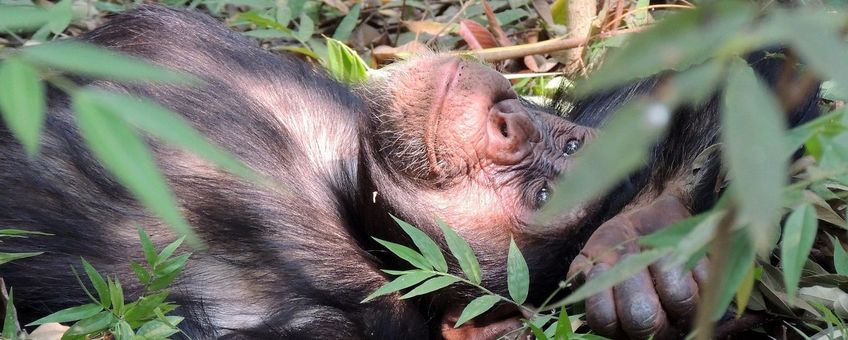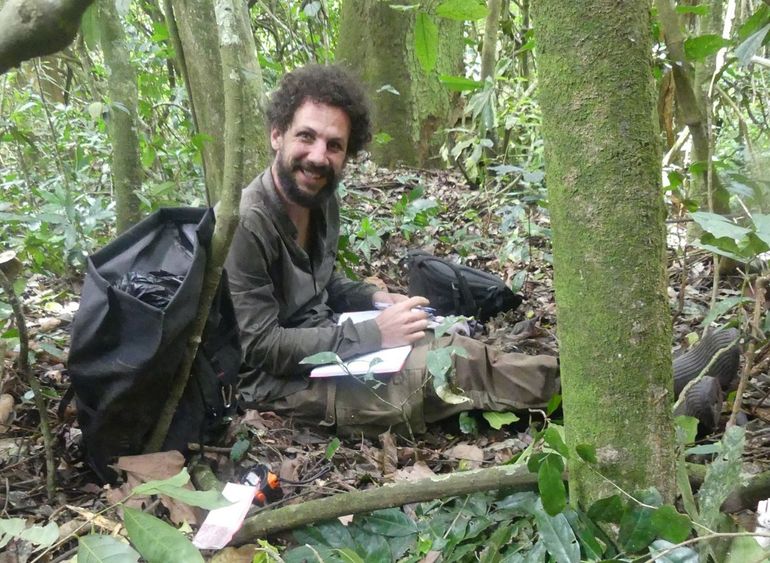
Eastern chimps like to build their overnight nests on the ground
Institute for Biodiversity and Ecosystem Dynamics (IBED)No large body size or control of fire
For decades, scientists studying hominid species, thought that a condition for sleeping on the ground by apes was either a large body size as is the case for gorillas, or the control of fire as with humans. Chimpanzees, however, have neither traits and yet, on average about ten percent of chimp populations in the Bili-Uéré landscape in the north of the Democratic Republic frequently sleep in terrestrial nests.
With the use of data collected between 2004 and 2013 by former University of Amsterdam Ph.D. researcher Cleve Hicks, currently at the University of Warsaw (UW), PhD candidate at UW Toni Romani and Hicks studied the factors that lead Eastern chimpanzees (Pan troglodytes schweinfurthii) to make nests on the ground. On the paper, the researchers worked in close collaboration with Peter Roessingh and Steph Menken from IBED. Menken served as Hicks’ supervisor during his Ph.D. thesis and Menken helped with the data analysis.

Human hunting reduces ground nesting
The scientists conclude that the occurrence of ground nests is positively associated with ecological factors like denser forests, vine tangles, herb patches, and light gaps. Human hunting was found to reduce the probability of ground nesting, or eliminate the behaviour altogether. In addition, the chimpanzees nested at significantly lower heights with increasing distance from roads and settlements. Human presence without hunting, however, did not affect ground nesting behaviour.
According to Cleve Hicks, the latter is a particularly interesting finding. “It has implications for conservation strategies in areas where chimpanzees and humans frequently encounter one another. It appears that in the case of ground nesting, mere human presence does not alter chimpanzee behaviour. It is hunting that has a real impact. If this applies more generally to other aspects of the human-chimpanzee interface, then perhaps the proper approach is not excluding humans from forests to protect great ape traditions, so-called 'fortress conservation', but instead focusing on de-incentivizing the hunting of this endangered species, as well as, of course, slowing deforestation.”
Early hominins may have slept on the ground as well
Interestingly, the researchers also discovered that higher encounter rates of large carnivores such as leopards and hyenas had no significant impact on ground nest frequency or nest height. This might imply that a long time ago, early hominins may also have been able to sleep on the ground even before the invention of fire.
